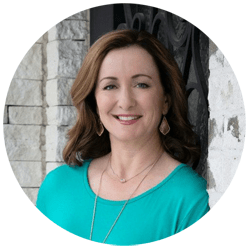
The Essentials of Sleep, Part 2 - The Effects of Aging on Sleep
Jan 07, 2025Jennifer Engels, MD
This article is the second in a 3-part series on sleep and its crucial importance to our overall health. Please visit here to read part one.
As we age, sleep often changes in unexpected ways. What may have once been a simple part of the day can become increasingly elusive or less restful, leaving us tired and frustrated. But aging doesn’t mean we have to accept poor sleep as inevitable.
By understanding why sleep changes with age and using effective strategies to overcome these challenges, we can continue enjoying restorative, health-promoting sleep well into later years.
How Aging Affects Sleep
Changes in sleep patterns and quality are common with age. Research shows that while the body’s need for sleep doesn’t decrease, the way we sleep often does.
- Biological Changes: As we age, our bodies produce less melatonin, the hormone responsible for sleep-wake regulation. Hormonal shifts, particularly in post-menopausal women, can further impact sleep quality, making it more challenging to fall asleep or stay asleep.
- Changes in Sleep Architecture: Older adults often experience alterations in “sleep architecture,” the balance of the light, deep, and REM sleep stages. Time spent in deep sleep tends to decline, making sleep feel less refreshing, even if the total time in bed hasn’t changed.
- Circadian Rhythm Adjustments: Aging can shift the circadian rhythms (our internal clock), leading many to become “early birds” and feel sleepy earlier in the evening. This shift, combined with other lifestyle factors, can make it more difficult to get uninterrupted, high-quality sleep.
Other Common Causes of Poor Sleep in Older Adults
Beyond aging, several other factors may contribute to sleep challenges as we grow older, including lifestyle habits, health conditions, and medications:
- Lifestyle Factors: Reduced physical activity, changes in daily routines, and less exposure to natural light can all impact sleep quality. Staying active and maintaining a regular daily routine can support natural sleep patterns.
- Chronic Health Conditions: Common conditions such as arthritis, heart disease, and respiratory disorders can cause pain, discomfort, or breathing issues interrupting sleep. Addressing these issues holistically is vital to improving sleep.
- Medication Side Effects: Some medications frequently prescribed to older adults can interfere with sleep by causing wakefulness or disrupting natural sleep cycles. For example, certain blood pressure medications or antidepressants may contribute to insomnia or restless sleep.
Implementing Better Sleep Hygiene in Later Years
Sleep hygiene means having good sleep practices, and adjusting these practices as we grow older can help you achieve restful sleep. Here are some practical tips:
- Limit caffeine and alcohol for better sleep: Caffeine, a stimulant found in coffee, tea, chocolate, and some medications, can disrupt sleep if consumed within 4–6 hours of bedtime. While alcohol may initially help you fall asleep, it later acts as a stimulant, reducing sleep quality. Aim to limit alcohol to 1–2 drinks per day and avoid it within 3 hours of bedtime.
- Adapt Sleep Routines: While maintaining a set bedtime is helpful at any age, older adults may benefit from going to bed earlier to align with natural circadian shifts. Experimenting with slightly different sleep and wake times can sometimes make a big difference.
- Optimize Comfort and Support: As sensitivity to discomfort can increase with age, ensuring that the mattress and pillows offer sufficient support can help prevent aches that might interrupt sleep.
- Use White Noise or Other Soothing Sounds: For those who find it difficult to fall back asleep after waking in the night, gentle white noise or calming music may help ease the mind back to sleep.
Functional Medicine’s Approach Age-Related Sleep Challenges
Functional Medicine offers a holistic approach to supporting restful sleep at any age. It focuses on lifestyle, nutrition, and mind-body practices to address the root causes of poor sleep. As a practitioner of Functional Medicine, I emphasize the following to assist with sleep issues, including:
- Lifestyle Adjustments: Regular physical activity and consistent routines can help reset the body’s natural sleep-wake cycle, our circadian rhythm. Engaging in outdoor activities with natural sunlight exposure is particularly beneficial, as sunlight helps the body regulate melatonin levels and maintain a balanced circadian rhythm.
- Diet and Supplementation: Nutrition plays a significant role in sleep quality. Foods rich in magnesium (like leafy greens, nuts, and seeds), vitamin B6 (such as bananas, chickpeas, and salmon), and tryptophan (found in turkey and eggs) are known to promote sleep. Supplements like magnesium, melatonin, or herbal options like valerian root may also be helpful under professional guidance.
- Mind-Body Practices: Gentle mind-body practices like yoga, meditation, or tai chi can help reduce stress and improve sleep quality by promoting relaxation. Deep breathing exercises before bed, or even brief stretching routines, can help signal to the body that it’s time to wind down.
WeCare Frisco Can Help
If you’ve noticed changes in your sleep or are struggling to get the rest you need, Functional Medicine can provide answers. At WeCare Frisco, we offer personalized assessments to help you find the root causes of your sleep challenges and create a plan tailored to your unique needs.
Call us today to learn how we can support your journey to healthier, more restful sleep at any age.
Click here to read Part 3, where we conclude this series by examining sleep apnea and various treatment options.



